How Heavy Dumbbells do I need?
While barbell bench press and dumbbell bench press work the same muscle groups they do have their differences. Generally, if you can bench press 100kgs on with a barbell it does not mean you can press 50kg dumbbells. So, you can potentially save money and space by choosing dumbbells that match your strength potential.
Barbell Bench Press vs Dumbbell Press
The main differences between the two exercises are:
Range of motion – dumbbells will help you to get a significantly better range of motion compared to a traditional barbell bench press.

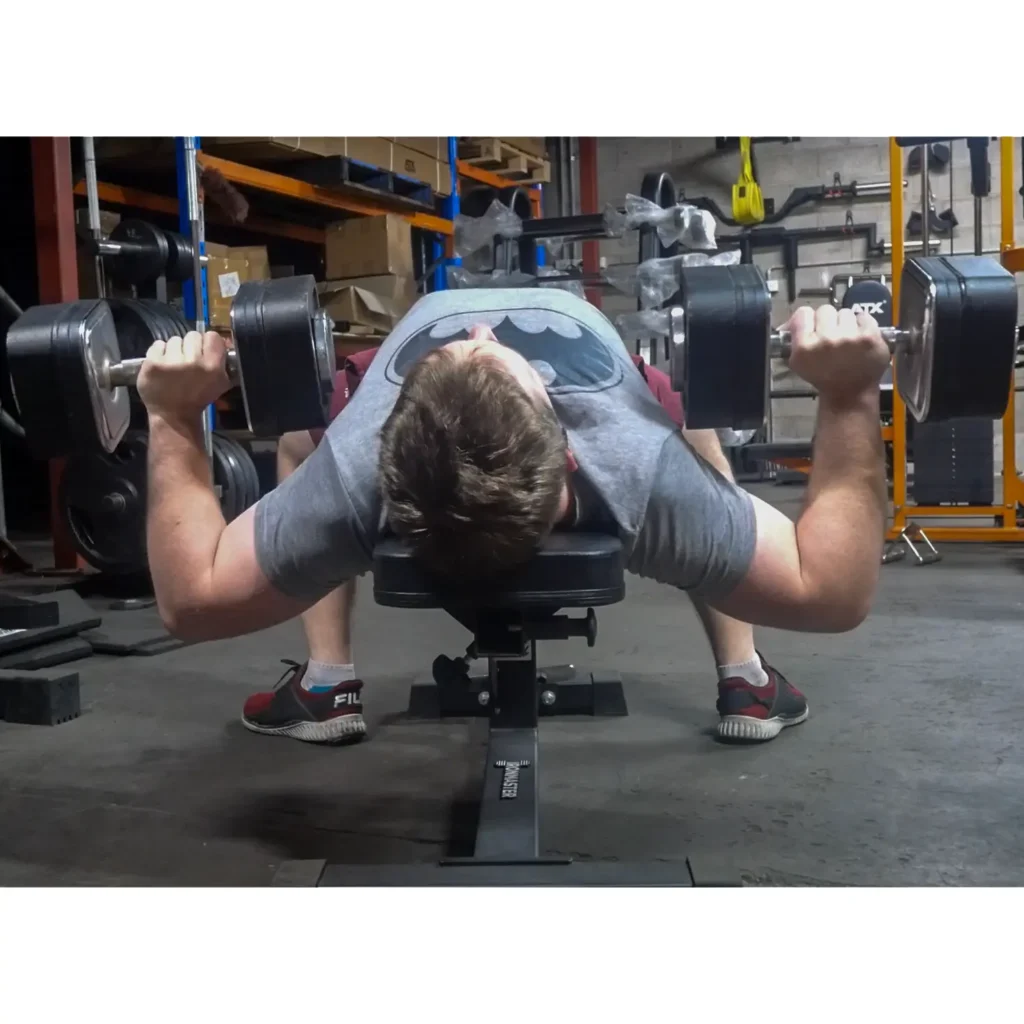

Asymmetry – if you do have muscle imbalances, dumbbells are a great way to balance them out.
Joint load – the freedom of movement which you get with dumbbells will allow you to get a better muscle extension and contraction. This greater range of motion means you will generally lift less weight. With correct form you can reduce the strain on your joints.
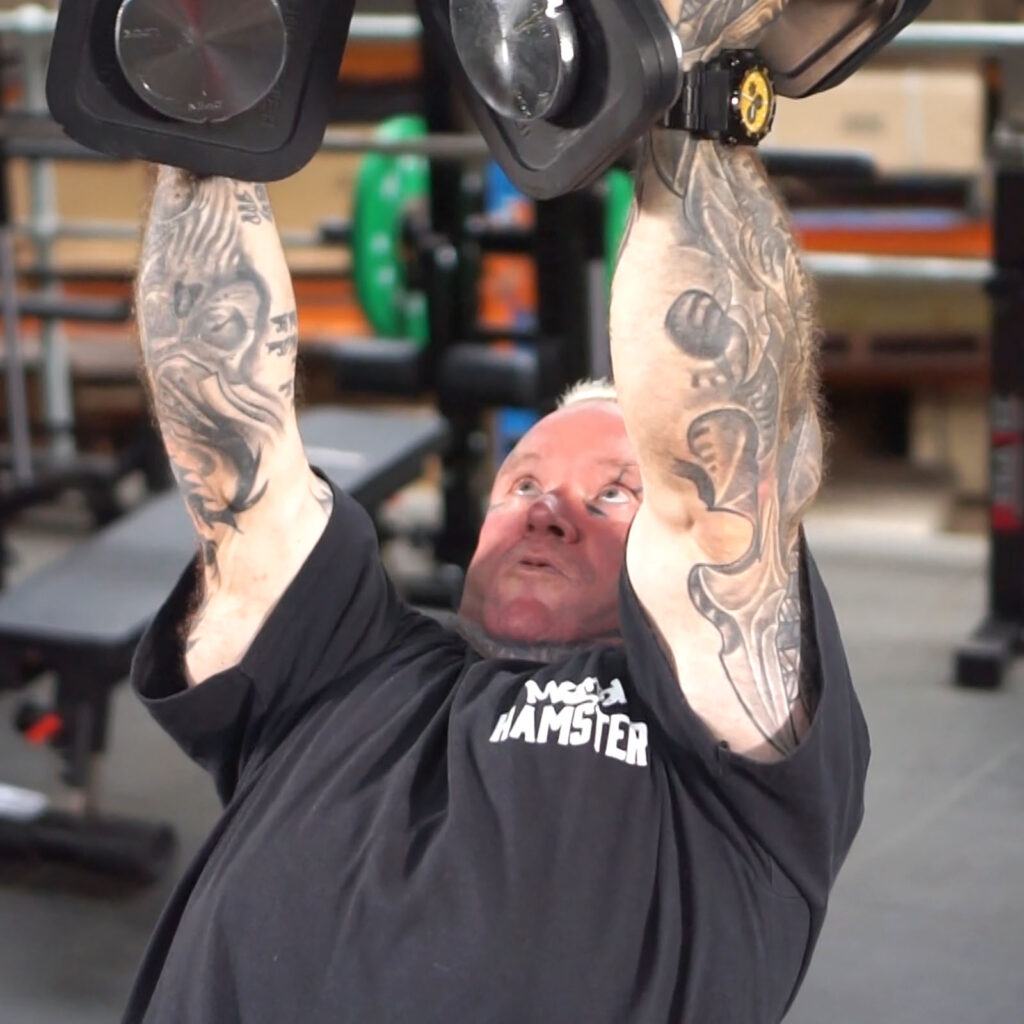
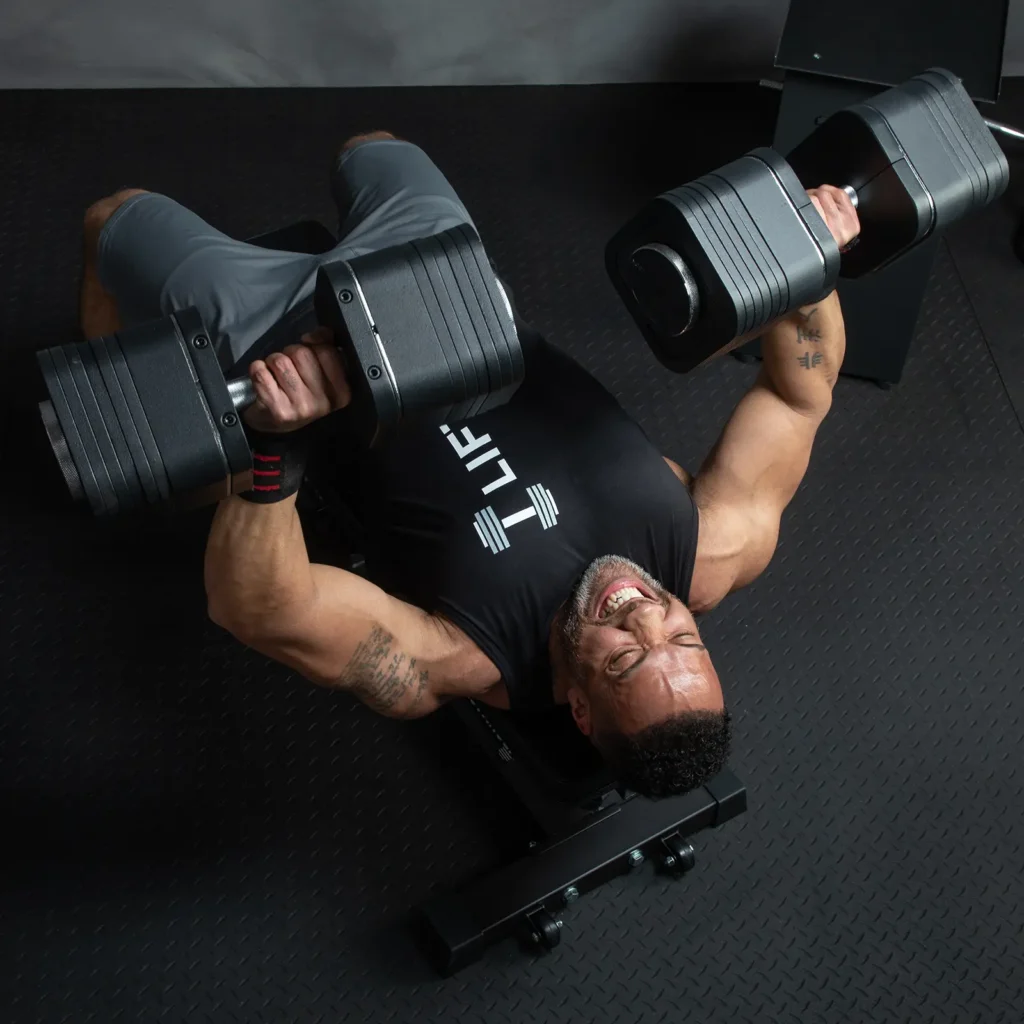
Stabilization – dumbbells require far more stabilization compared to your regular barbell bench press. Meaning that your stabilizing muscles will be working overtime while you try and maintain the correct pressing path. This part also means that you will expend a lot of energy trying to stabilize the dumbbells which is suboptimal when comes to lifting heavy.
Safety – when training with heavy dumbbells there is no fallback plan. If you fail the lift the dumbbells are going down. Experienced lifters know how to handle such situations. If you are not experienced do not push yourself to the limit!
With barbell bench press, if you use a quality power rack with safety spotters, you can train to failure with safety.
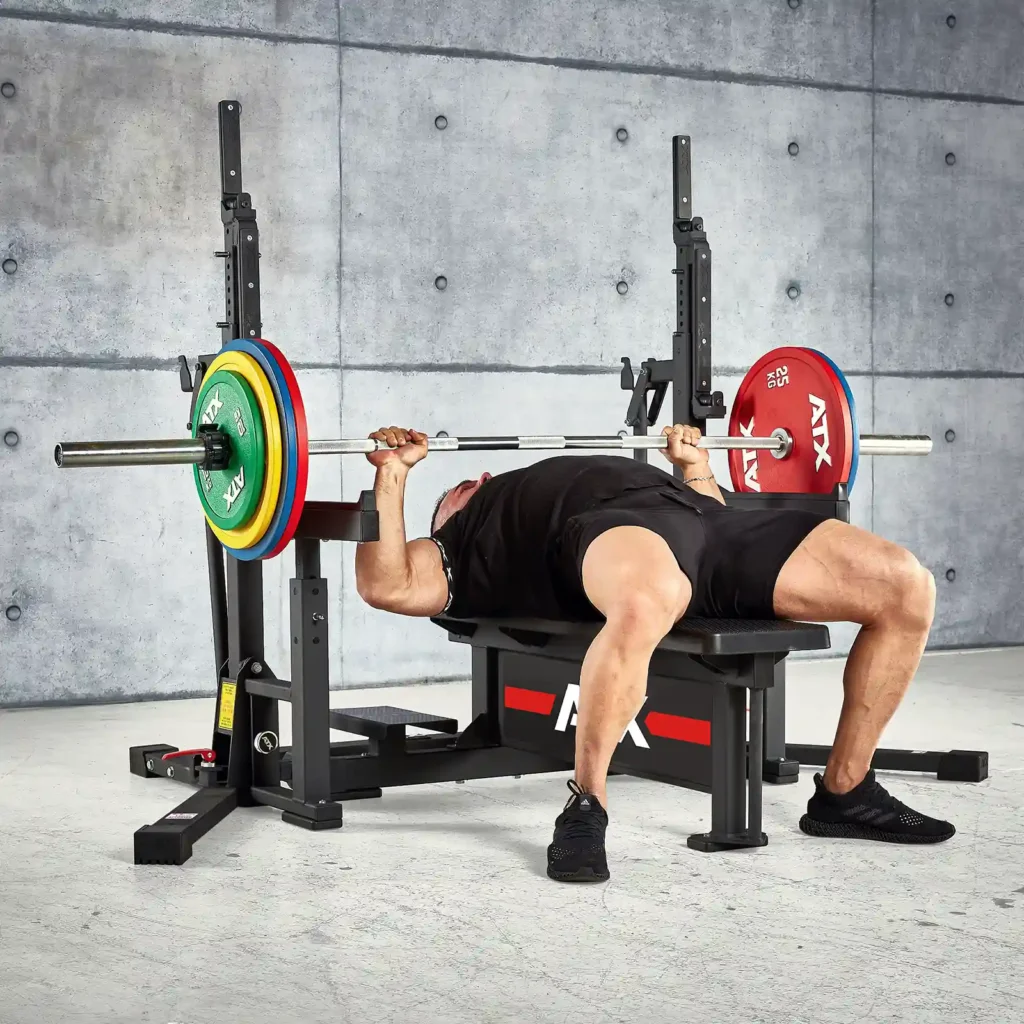
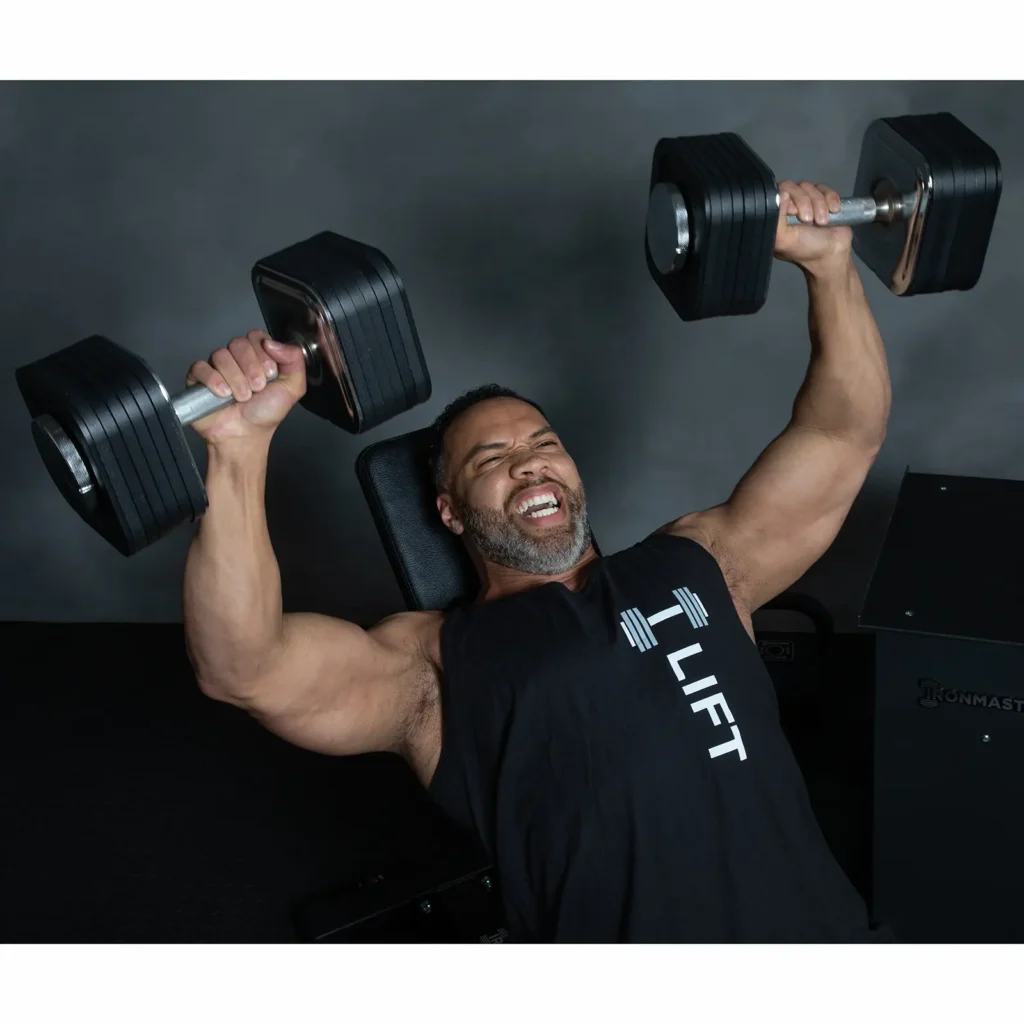
Risk of injury – both exercises have an element of risk if you use poor form. The risk is greater with dumbbells as you have a greater range of motion. Combined with the increased instability associated with dumbbells, poor form can lead to a disaster.
Like all lifts, the upsides of using poor form are negligible. So do yourself a favour and lift with textbook technique.
So what are the heaviest dumbbells you should buy?
Part of the answer depends on the sport you are trying to get into:
If you are a powerlifter or someone who wants to brag about their bench press numbers on social media, you won’t need to invest into a super heavy dumbbell set. You will primarily train with a barbell. You will try to lift more with a barbell and ideally you would use dumbbells for accessory work.
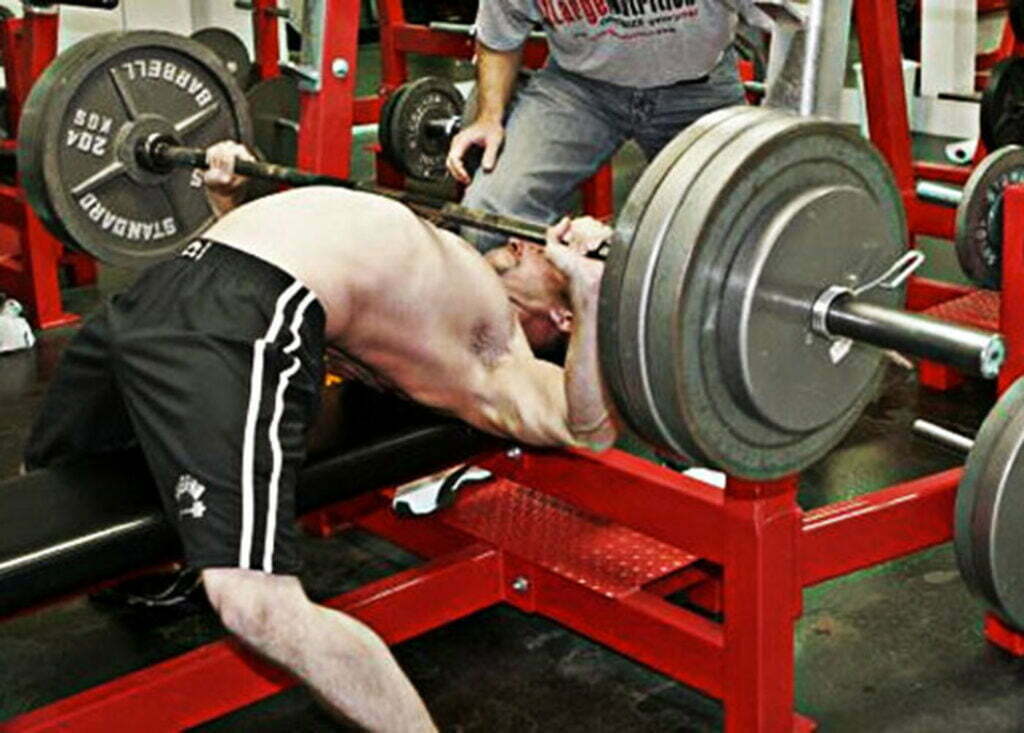
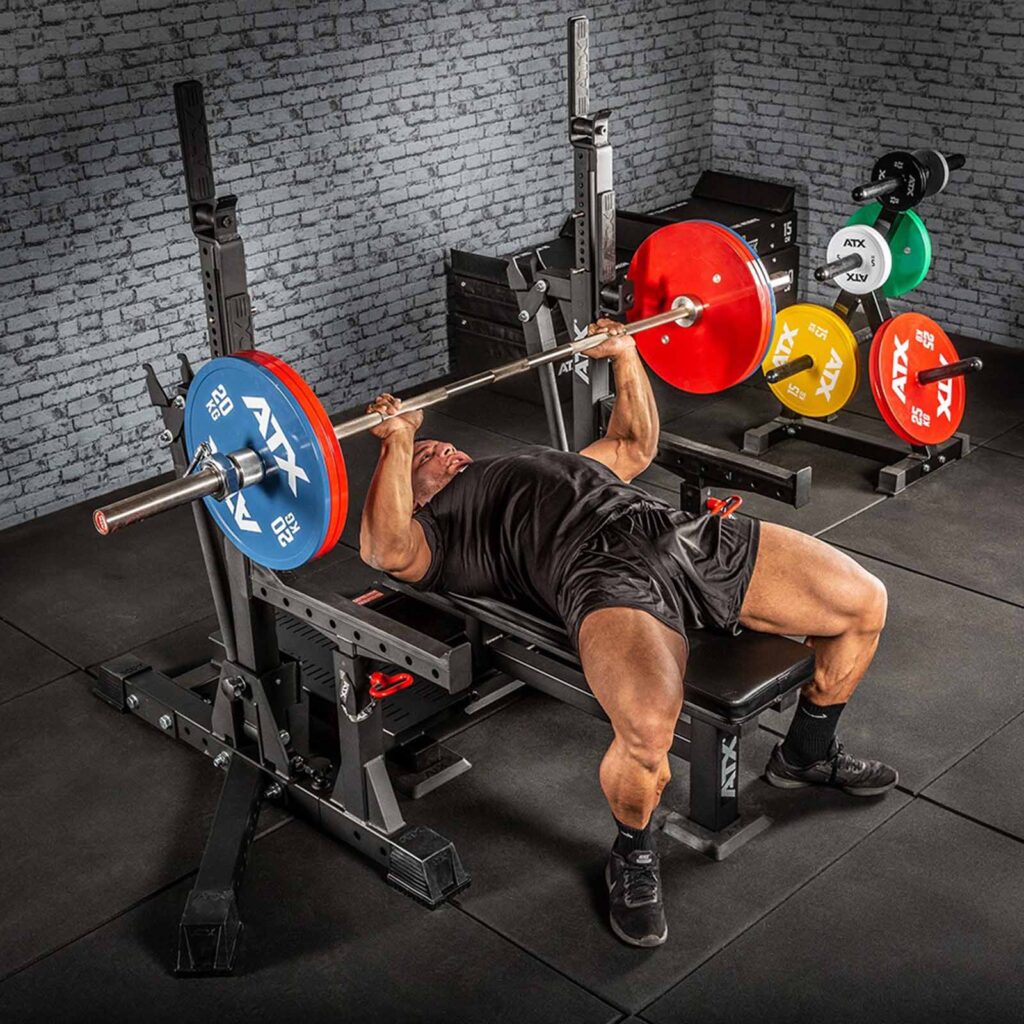
Let’s say you’ve had a heavy barbell bench press workout and you want to move to a heavy incline dumbbell press. Your stabilizer muscles are already going to be fatigued from lifting a heavy barbell. The larger muscles will be able to handle the volume and the weight. However your stabilizer muscles will struggle and you will increase the risk of injury.
Take Brett the Tradie as an example, he is lifting very impressive 70 kgs dumbbells for 8 reps with an even more impressive form. The movement is slow and controlled and is moving in a perfect barbell path without his form deteriorating as he bangs out the reps.
The most important thing you can see in the video, is that he stops pressing the second the movement becomes difficult. Even though he still could have done a couple of reps with compromised form.
Dumbbell to Barbell Bench Press Ratio
Now lets analyse how his strength translates to the bench press weight bench.
First it is his form – there is no movement at all in his body, so he can stabilize the weight and he doesn’t waste any unnecessary energy while moving the weight.
Secondly it is weight lifted – 260 kgs with a textbook form is beyond impressive. 90% of the weight training enthusiasts could not even get close to half of the weight he is lifting.
If we go by Bretts numbers, we can come up with this equation:
Dumbbells pressed with textbook form for 8 reps = 70 kgs, then 1 rep max = 260 kg
If we use this equation, then it would mean that if you can press 2 x 35 kgs with textbook form for 8 reps, then you should be able to bench press 130 kgs.
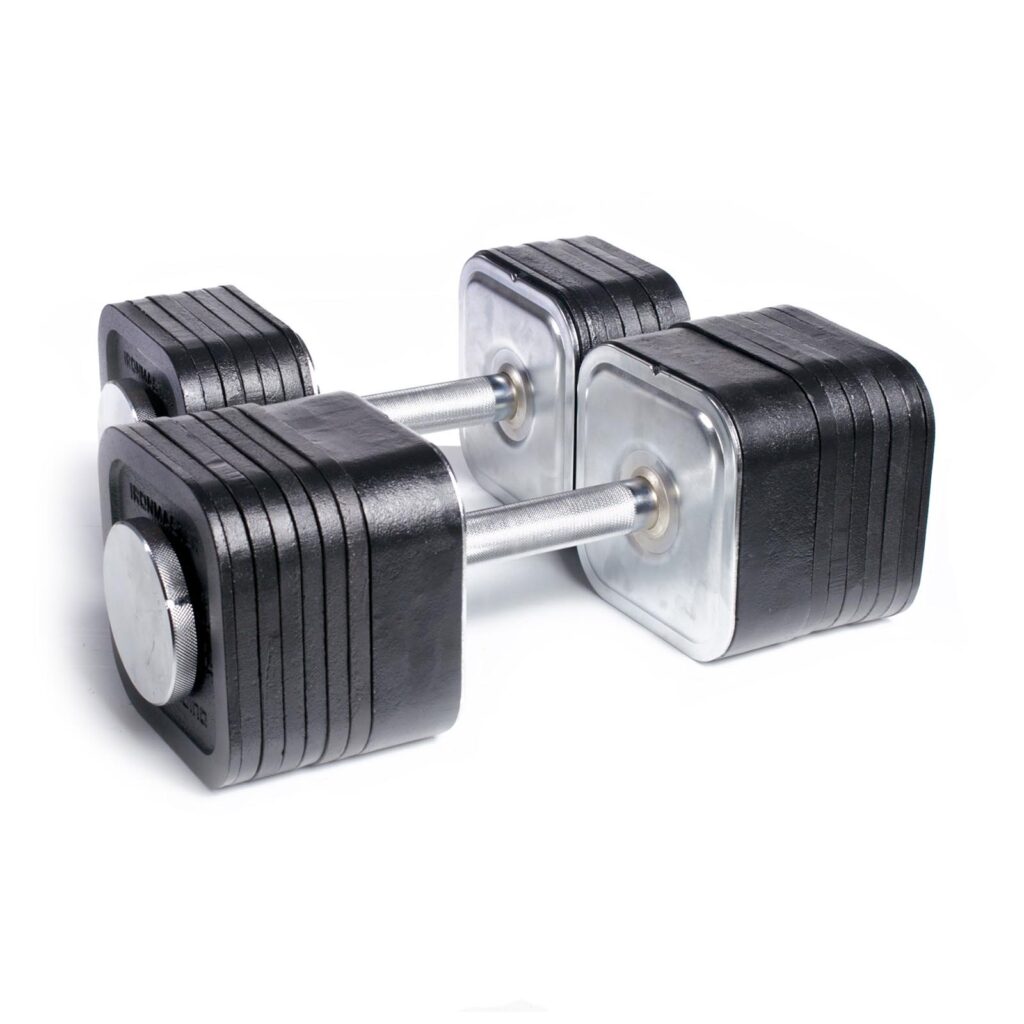
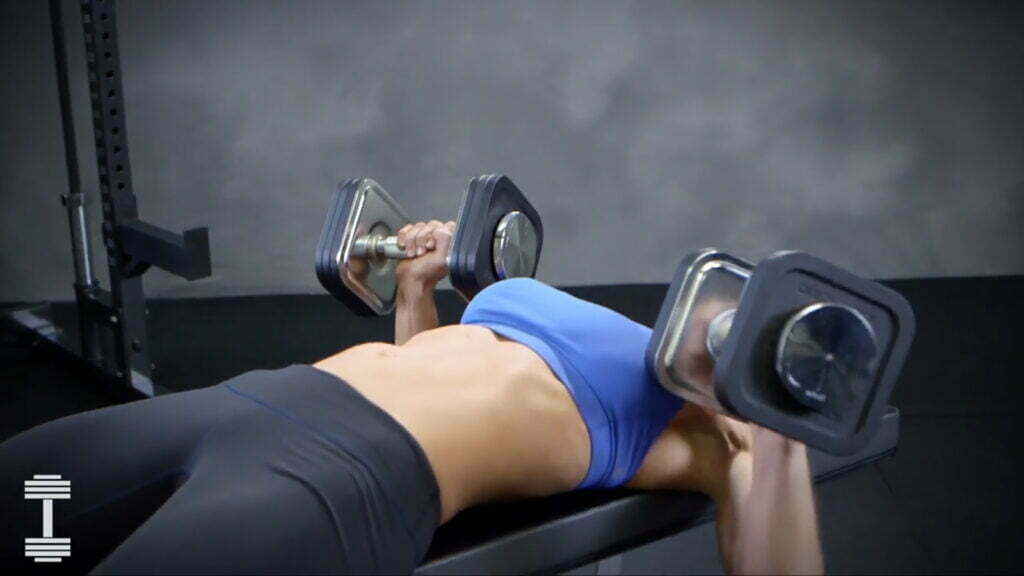
If we go by online consensus, the ratio will be between 0.32 and 0.38, meaning that you will be able to bench press from 32% to 38% more via free weight barbell compared to dumbbells. Which would mean that if you can bench press 2 x 50 kgs dumbbells you should be able to bench press somewhere between 132 kgs and 138 kgs.
The Powerlifting Perspective
Now as a competitive bench presser, I disagree with the “internet consensus”. Personally, I have bench pressed 195 kg myself (in a gym setting, only 185 kgs in a competition), and I have never gone past 50 kgs dumbbells. The heavier the dumbbells you are pressing the more risks you are running.
In my competition preparation I have been prioritize the maximum weight I can move on a barbell and not dumbbells. Instead, I have used dumbbells for accessory exercises and not my core lift. And lastly, I focused on protecting my joints, tendons, ligaments, and muscles from serious injuries as heavy dumbbell training can be fraught with danger.
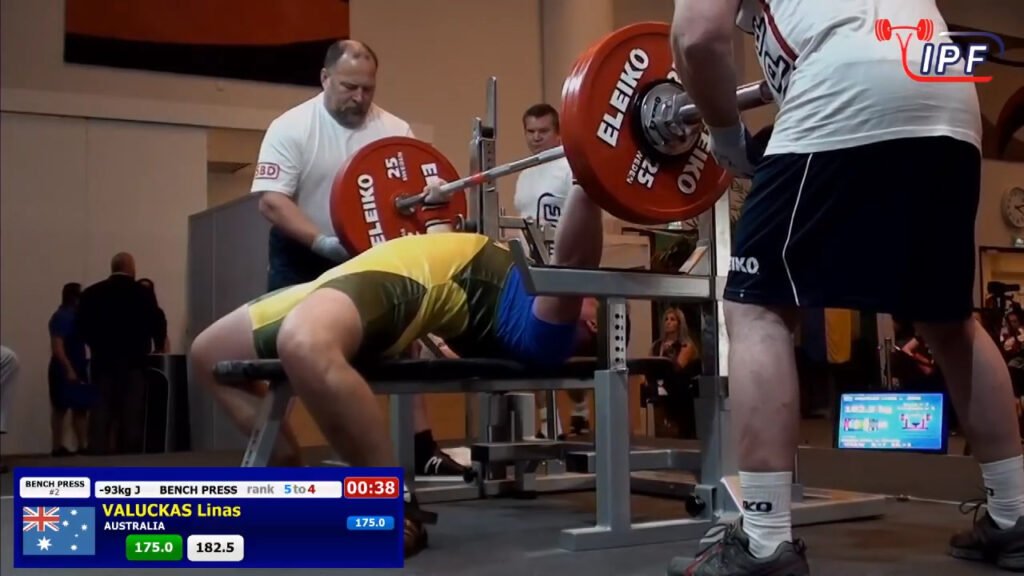
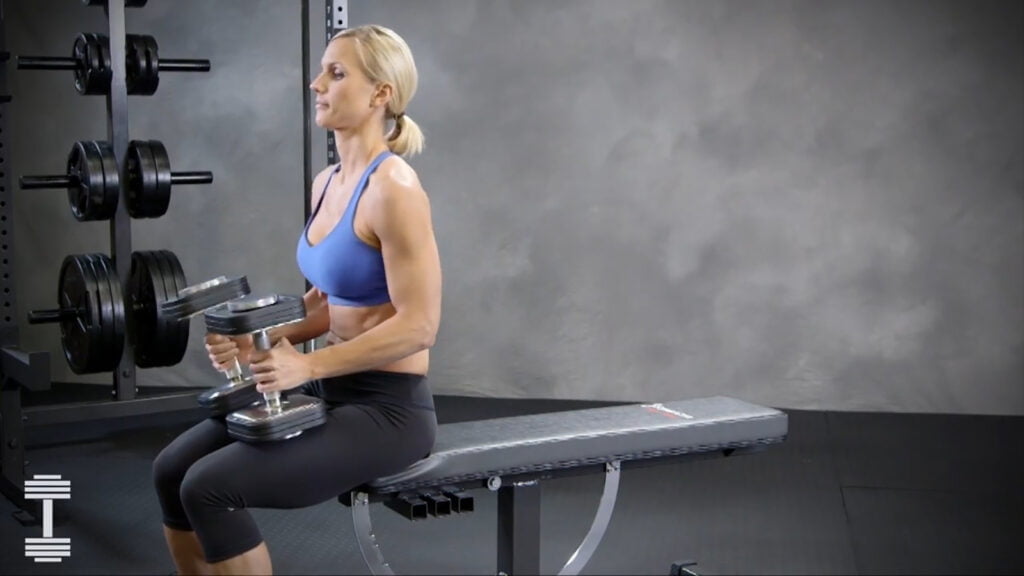
Firstly, getting into a starting position involves a few steps. First you got to know how to throw the dumbbells up. Once you have heaved them into position you are ready to start the lift. Starting any heavy lift from the bottom is always a challenge. In this case your pecs are overloaded – pec tears are any serious bench pressers worse nightmare!
Then you really need to have the necessary strength to control the dumbbells. As mentioned above the freedom of movement can compromise your form in case you do have muscle imbalances. You will not really find this out until you are under heavy weight.
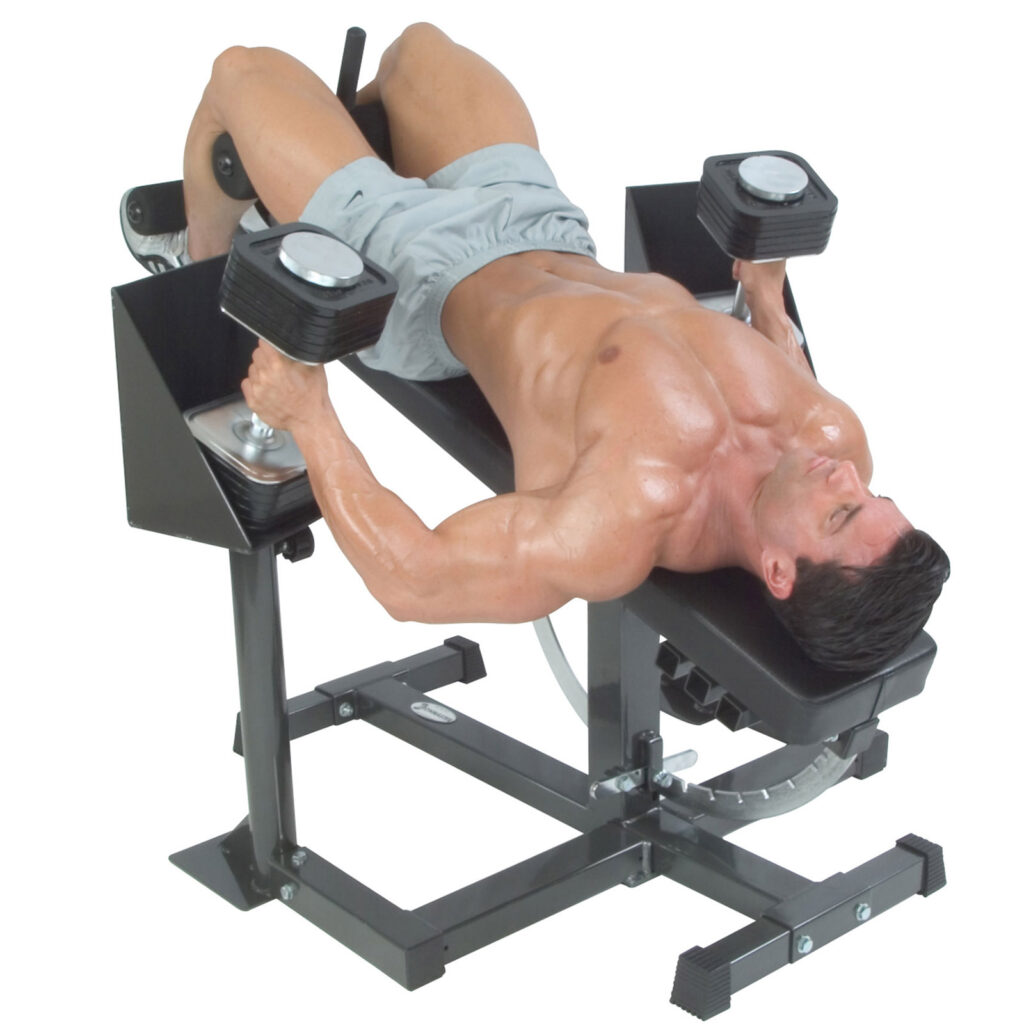
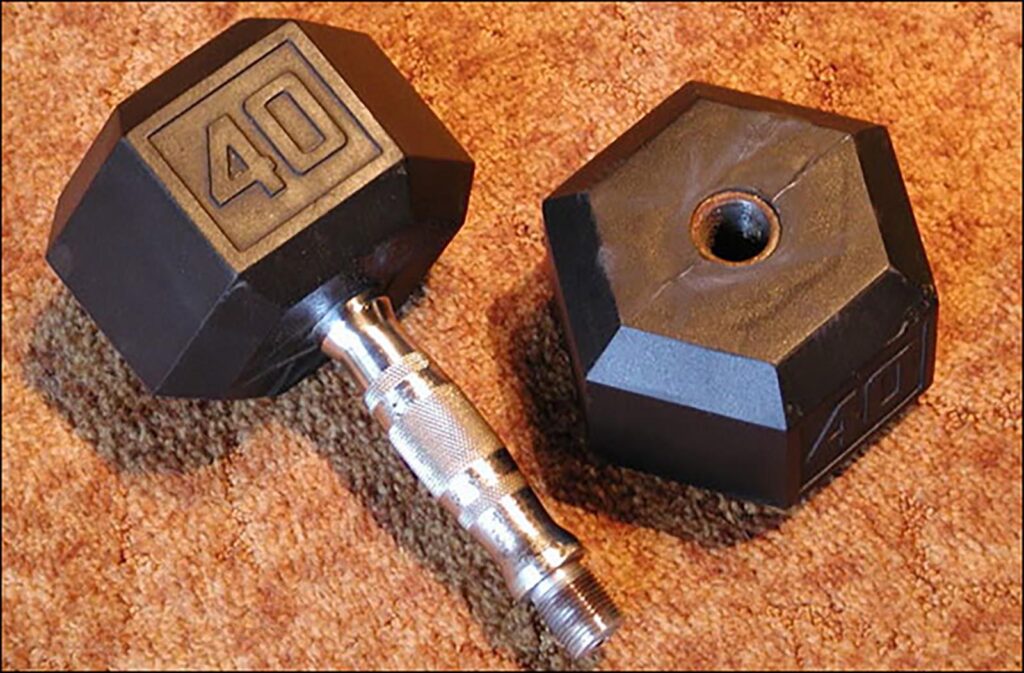
If you navigate the set and your pecs and triceps are glowing you now must get the dumbbells to the floor. Now dropping dumbbells is not advisable. You risk damaging your dumbbells, your gym or even worse – you! Learn the correct technique with light dumbbells. And then only lift dumbbells that you can safely lower with this technique.
A heavy dumbbell set is great if you are a powerlifter or an advanced bodybuilder.
You can achieve same and or better results by using a free weight barbell and adding some lighter dumbbells for your accessory work.
Adjustable dumbbells, like the Ironmaster Quick Locks, are great for this. They take up minimal space and will give you a weight range required for both heavy presses and all accessory work you can imagine.

You can also train with just dumbbells alone, it is just that you need to be cautious how you progress with the weights. You can get bigger and stronger without going to complete and utter failure. Many strength experts actually advise to keep a couple of reps in the tank.
The more often you lift the more comfortable you become handling heavier weights. I am talking years not months or weeks. So take your time and maintain proper form at all times.
